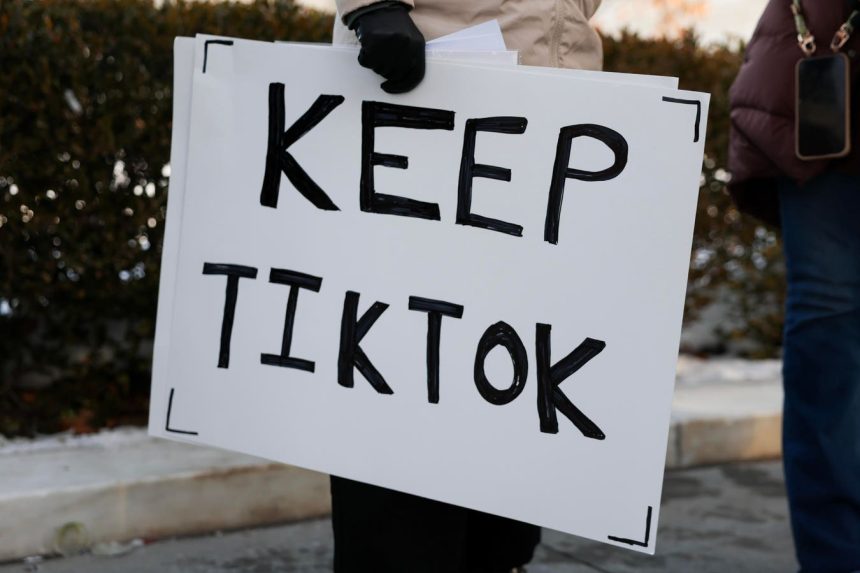The impending TikTok ban, slated to commence this Sunday, has been upheld by the Supreme Court, seemingly concluding a protracted debate over the app’s future in the United States. Despite the unified stance of Congress, President Biden, and the highest court, dissenting voices, including Biden himself, complicate the situation. The president has indicated his intention to defer enforcement to the incoming Trump administration, creating uncertainty about the ban’s immediate impact. While the legal landscape appears definitive, the political will to enforce the ban remains ambiguous, leaving room for potential reprieve for the popular social media platform.
The ban, in its current form, primarily targets app stores, holding them liable for distributing TikTok and potentially subjecting them to fines. While the law doesn’t explicitly criminalize individual usage, the Justice Department’s intent is clear: to discourage Americans from accessing the app due to concerns surrounding data collection, foreign influence, potential coercion, and privacy violations. This presents users with a personal dilemma, weighing the convenience and enjoyment of the app against the ethical and security implications of using a banned platform. The looming ban creates a sense of unease and raises questions about the long-term viability of continued TikTok usage within the United States.
Despite the Supreme Court’s affirmation, a glimmer of hope remains for TikTok’s survival. Both President Biden and President-elect Trump have signaled a willingness to revisit the issue, potentially paving the way for an alternative solution. Trump, a vocal opponent of the ban, has expressed his intention to overturn it through an executive order. However, legal experts contend that such an action would be insufficient to nullify a law passed by Congress. While an executive order cannot directly reverse existing legislation, it could influence enforcement and potentially pressure Congress to reconsider its position. This suggests that the ban, while legally sound, may face political hurdles in its implementation.
The legal intricacies surrounding the ban necessitate a nuanced understanding of presidential powers. While an executive order cannot directly overturn Congressional legislation, the executive branch wields considerable influence over enforcement. The Trump administration could, for instance, prioritize other legal matters, effectively slowing down or even halting enforcement of the TikTok ban. This tactic, while not a direct reversal of the law, would allow TikTok to continue operating in the US, at least temporarily. Furthermore, the president could exert political pressure on Congress, urging them to amend or repeal the ban altogether. This complex interplay between the executive and legislative branches highlights the dynamic nature of the legal process and leaves the door open for potential changes to the ban’s trajectory.
Experts suggest that Congressional modification of the existing law represents the most viable path forward for TikTok. This would require a concerted effort from the incoming administration to engage with lawmakers and build a consensus for amending or repealing the ban. The legal and political maneuvering required to achieve this outcome underscores the intricate balance of power within the US government. While the Supreme Court’s decision carries significant weight, it is not the final word in this ongoing saga. The ultimate fate of TikTok in the United States rests on the political will of the incoming administration and its ability to navigate the complexities of the legislative process.
The TikTok ban, though legally affirmed, remains a fluid situation. The confluence of legal and political factors creates an environment of uncertainty, leaving the app’s future in the US hanging in the balance. While the ban is technically set to take effect this Sunday, the likelihood of immediate and robust enforcement appears doubtful. The incoming Trump administration’s stance and subsequent actions will ultimately determine the long-term consequences for TikTok and its millions of American users. The possibility of a legislative reprieve, while not guaranteed, offers a sliver of hope for the platform’s continued operation in the United States. The coming days and weeks will be crucial in determining whether TikTok can navigate this legal and political labyrinth and secure its future in the American market.



